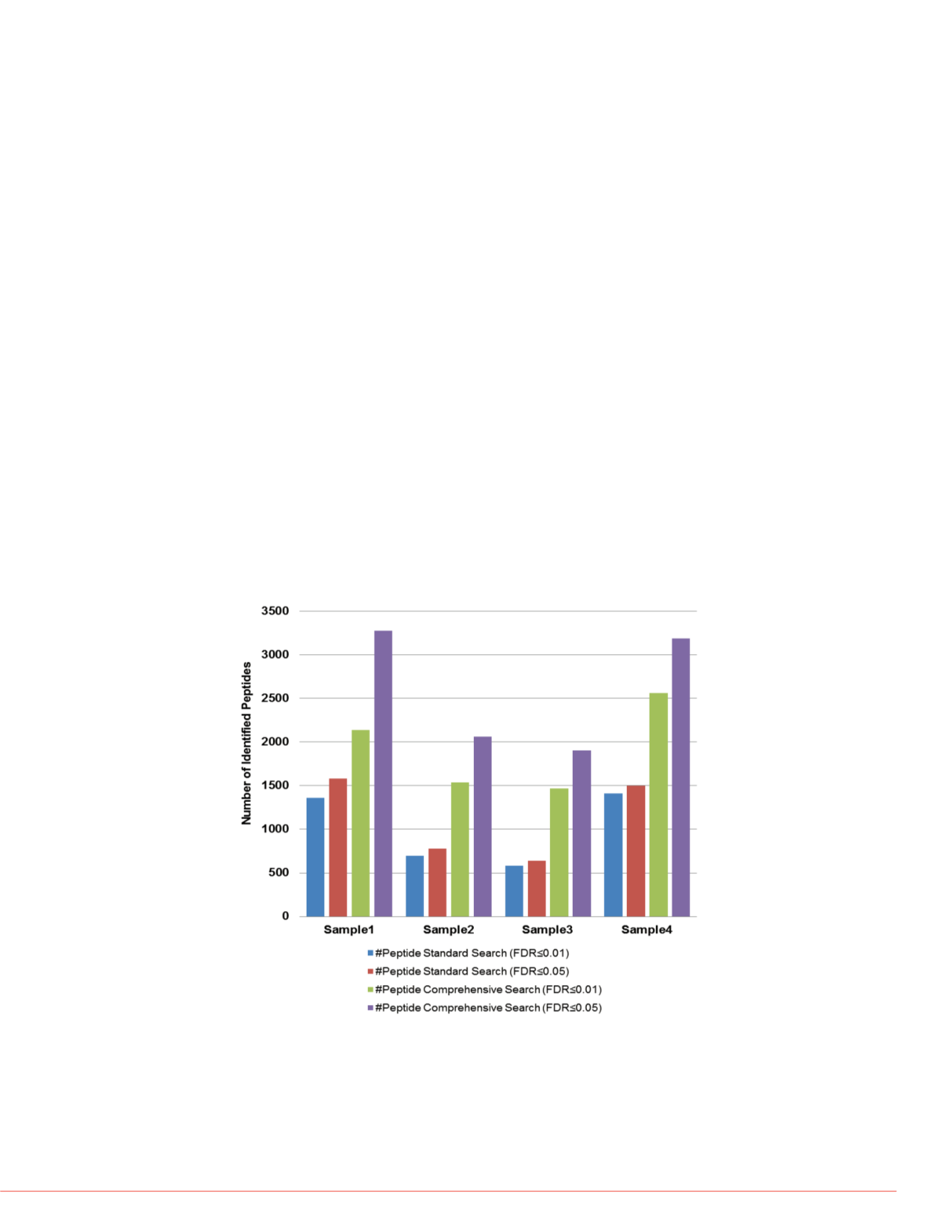

5
Thermo Scienti c Poster Note
•
PN HUPO13_POS-02-041_APrakash
_E 09/13S
p to identify
ehensive MS/MS
roteome
fidence
various search
re explored. We
is of protein
c digestion and
f PTMs in each
plasma and urine
Orbitrap™ hybrid
rkflow was found to
IDs and identify
s in a single run.
rching workflow in
ination of multiple
hion to maximize
the most
and partially
were judiciously
rotKB) of each
described in, from
de data1. The
samples analyzed
comprehensive
two different
ples). Human urine
l consent and
duction and
rometry
a 5-45%
g a C18 nano-LC
d a plasma sample
90 minutes,
h a Thermo
op 11 and Top 10
CID fragmentation.
and 4) were run
with the Thermo
ectrometer, with
fragmentation.
ome Discoverer 1.4
database using the
and compared with
fications (oxidation
alkylation as static
ion (Standard
Results
We compared the results from our comprehensive searching
strategy with a standard search strategy. We found that on
average, the number of high-confidence peptide identifications
(FDR≤0.01) increased approximately 2
-fold with our
comprehensive workflow compared to standard searches,
whereas the increment in the number of medium confidence
peptide identifications (FDR≤0.05) was more than two times
compared to standard search (Figure 2).
The comprehensive workflow was found to increase the
number of high-
confidence protein identifications (FDR≤0.01)
by 90% and the high-confidence protein groups by 75% with
respect to the standard search condition. Moreover, the
comprehensive workflow increases the high-confidence group
proteins (with at least two high-confidence peptides for every
protein in the group) by 23% (Figure 3).
The comprehensive workflow identified several high-confidence
peptides with multiple PTMs which reveals the importance of
particular combinations of PTMs in a search node (Table 2).
FIGURE 2. Comprehensive workflow increases number of
peptide identifications (sample 1 = urine, sample 2-4 =
plasma)
FIGURE 3. The comprehensive workflow increases the
number of identified protein groups with at least two
peptide hits per protein.
Conclusio
A comprehensi
as many high-c
standard searc
The comprehe
of high-confide
confidence pro
90% and 75%,
search approa
The comprehe
confidence pep
The percentag
when using the
Proteome Disc
Reference
1. Khoury GA, Ba
translational m
curation of the
13;1.
2. Schandorff S,
File
Total
Spectra
S
(F
Sample1
27215
Sample2
14005
Sample3
43036
Sample4
44450
Example
Protein
1
A1AT
2
ALBU
3
A2MG
4
AACT
5
APOB
6
CERU
7
HEMO
8
TRFE
9
TTHY
10
VTDB
Table 4. Compreh
coverage
Moreover, the com
sequence coverag
information about



















